Director Lukas Dhont has selected five emerging Flemish filmmakers for Connext’s inaugural The Future Five initiative as part of Flanders Image’s annual film and TV showcase (October 9-10).
Read profiles of those selected below:
Sarah Lederman
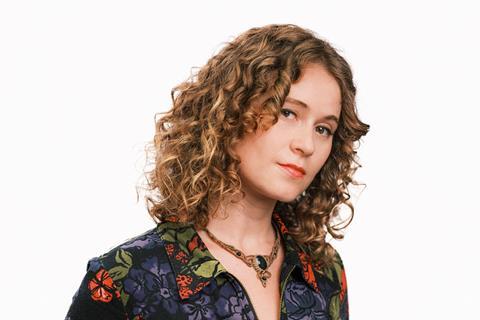
Earlier this year, Sarah Lederman won a prestigious Ensor award for best short for her film, Licht. This is a Flemish award that Lukas Dhont himself also won. The short documentary is about Julie, a teenager confronting the future after her mother and father die. It was shot on 16mm and made for children as part of an initiative hatched by Belgian broadcaster Ketnet with the support of the VAF.
“The movie shows her resilience and strength while coping with this loss,” says the director whose own father was seriously ill while she was making the film.
Licht sees Julie adopted by two new fathers, one of them was the rabbi at Lederman’s own progressive synagogue. The director met her subject through the synagogue.
Lederman studied film both at RITCS and at Sint-Lukas in Brussels. Her earlier short film Les Racines de l’Eau (The Roots Of Water) won the best short film award at the UK Jewish Film Festival 2022. This is about two young women exploring what it means to be Jewish today.
“I would love to become very good and very famous [as a filmmaker],” says Lederman of her ambitions.
Lederman has also made short fiction films including Friday 1st July, about two neighbours, one a pious Jewish woman, the other a secular non-Jewish woman, whose paths cross during a power cut.
The prolific young director is also working on a series with leading Belgian production company Caviar.
Lukas Dhont says: “I saw Sarah’s short film The Roots Of Water at the film festival in Leuven. I was incredibly struck by the filmmaker’s relationship with her subject and a sort of intimacy and complete renegotiation of what the relationship should be. This was this power play which can happen in documentary that she immediately eliminated from the film. It was also the fact these are just two women looking for the roots of their culture. There is an image at the beginning of the film when Sarah asks this woman to look into the camera. The way she is looking into the camera is so piercing. I can’t forget it. The film is incredibly clever and very emotionally engaging.”
Pol de Plecker
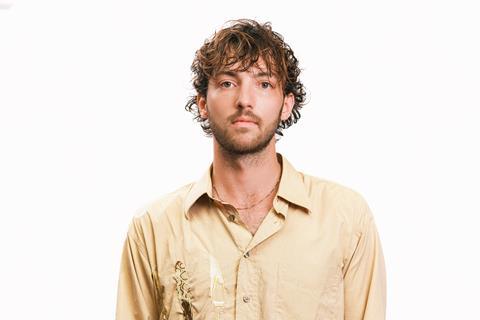
Pol de Plecker shot his short Noisetrain in 2022 about the frozen limits of Iceland where three men wake up on a train in the middle of nowhere. They venture outside but then end up stranded in the Arctic landscape.
The film won an honorary award for artistic achievement at Vienna Shorts 2023.
De Plecker studied at the Kask Film School in Ghent and credits Jaco Van Dormael’s 2009 sci-fi fantasy romance Mr Nobody with inspiring his passion for filmmaking.
Noisetrain was his graduation project. It is very loosely inspired by a largely forgotten Belgian novel The Train Of Slowness by Johan Daisme. “It’s a book with a lot of symbolism. It has a very simple narrative but it has a very layered nature. It is about dying and much more.”
The film is produced by Dagmar Duportail and together they found an Icelandic co-producer, Aldís Dagmar Erlingsdóttir and De Plecker cast leading Belgian stage actor Oscar Van Rompay to play one of the leads.
As he looks to build his career, de Plecker is directing commercials on the side while developing another short and a feature. The short film Pithead is a magical realist tale about a penguin that becomes separated from its colony while migrating through Belgium and is stuck up a tree next to a bar.
Dhont says: ‘The visual world, the cinematographic universe both in sound and in vision that Pol is able to create with Noisetrain is beyond mesmerising. It feels like this is someone who has been crafting mise en scene and shaping images for a decade. And yet he is this young guy who makes this short at the end of film school, goes to Iceland, and is over-ambitious, which I love. He shaped this absurdist journey which has a deep poetic layer to it.”
Ammen S Ogedengbe
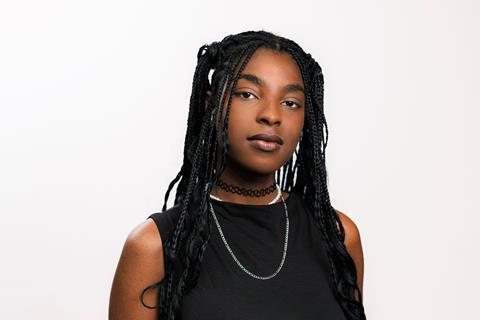
Ammen Simpson Ogedengbe’s 2020 short film Wildflowers - The Children Of Never is about a new girl at a very special summer boarding school. After it screened at the Leuven festival, Dhont contacted her on Instagram to tell her it was “gorgeous” and that he loved it.
Joosje Hendrikx, who produced Wildflowers and had been at film school with Dhont, brought the two together and Ogedengbe’s feature debut Sons Of God is being produced by Dhont’s nascent The Reunion outfit. It is a family drama about a little boy struggling to establish an emotional connection with his father.
The story has an autobiographical undertow, drawing on Ogedengbe’s own Nigerian heritage and her memories of bereavement within her own family after the death of her grandfather.
The director followed her older brother to film school at RITCS. He is now an editor on her films. “That gave me a little bit of access,” she says. “I always thought being on a film set was cool.”
But first Ogedengbe had tried to join the army. “I was 17 and lost. My dream was always to be a fighter jet pilot.”
When that plan didn’t work out, partly because she didn’t have 20:20 vision, she went to film school instead.
Now aged 27, Ogedengbe is hoping to complete her feature debut before she turns 30. “I am already way older than my mum was when she had me and she had just arrived in Belgium,” she notes.
In her work, she plans to continue to draw on family history: “It is a very complex web that I am now trying to untangle,” she explains. “That is what I hope I will continue to do in the future, make stories that mean something to me and people around me. There may be many children of immigrants who sometimes just don’t know what to do with themselves or with their parents.…”
Dhont says: “I love Wildflowers. The moment it started, I knew this is a director with a capital ‘D’ just by the way she was working with young people, the freedom she is allowing them. It felt both very choreographed and very free.”
Rand Abou Fakher
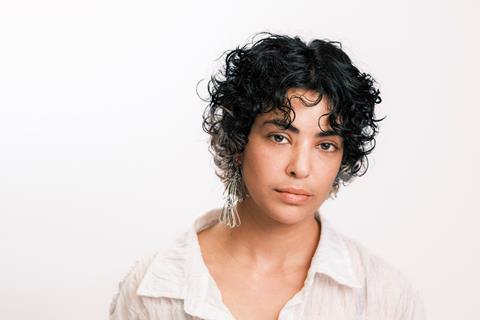
Before coming to Belgium in 2015, Rand Abou Fakher studied flute at the National Syrian Conservatory in Damascus and played with the national orchestra. Her short So We Live, about a family in a war ravaged country, screened at the Berlinale in 2020.
She first picked up a camera in Belgium after meeting a group of photographers for whom she was translating. “Quickly, I got less interested in photography and I just turned the camera towards me and I started filming myself, doing whatever I am doing,” she explains. “That was where my dream of filmmaking started.”
Rand’s first film Braided Love in 2018 was developed in a workshop with Hungarian auteur Bela Tarr as a mentor. It premiered at the Sarajevo Film Festival. She briefly attended film school in Brussels. “I went for two weeks…I left it quickly. Maybe I could say I have problems with institutions,” she says, also citing language and cultural barriers. (She didn’t speak Dutch).
Cinematographer Hans Bruch Jr produced So We Live alongside his partner Rosa Galguera. Bruch Jr also shot the film. “He’s my oldest cinema friend,” the director says of Bruch.
He and Galguera are now producing her first feature On My Way To Forgive, I Forgot Myself, a drama about a Queer displaced woman living in Brussels.
“She has a double life between her dysfunctional patriarchal family and her independent life. She looks for belonging, loving and healing.”
The script is complete and Rand is out to cast. Flanders fund VAF has provided support and also backed her shorts.
Dhont says: “So We Live is one of the best shorts I have seen in recent times. Rand is able to talk about the biggest subjects, war, destruction, love, all through the intimate space of an apartment where a family is living She has found this very horrifying way of talking about creating normalities in absurdities. That was incredibly beautiful. She chose to focus her camera on how we can create life in the middle of horror, how we can continue while everything is being destroyed around us. It’s just extraordinary, so well done, profound and layered.
Cato Kusters
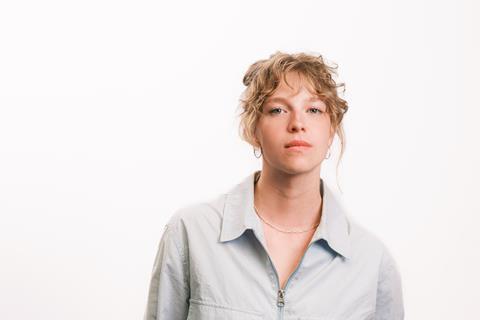
Writer-director Cato Kusters’ short film Finn’s Heel, about two teenage boys thrown together at a boxing club who have to decide whether they want to fight or be friends, won the best Belgian student short at Film Festival Gent.
“It was my graduation film,” she says of the project. It was inspired by an incident with her teenage nephew who was drawn into a fight with his parents. She knew him as “a very sweet boy’ but, when he came to her to confide, he suddenly began using very aggressive language.
“I realised that at a certain age some boys learn they have to be this sort of way. I started thinking that maybe as a girl or a woman, that’s the privilege we have. We are expected to be open about feelings and to be vulnerable. That can really work against you but it can also help you.”
The short was produced by her best friend from high school, Charlotte Mattelin, an economics student. “She did an amazing job. We organised a small premiere for people who could buy a ticket a year in advance…the tickets were our funding.”
Lukas Dhont’s brother and producer Michiel attended the premiere and was very enthusiastic. Further funding came from student scholarships.
A graduate of the RITCS School of Arts in Brussels, Kusters has a degree in editing. Her early ambition had been to act but turned to film after meeting a film lecturer from Sint-Lukas, another Brussels film school, at a careers fair.
Kusters is now working on a new project through the Dhont’s production company The Reunion. They’ve already received development support from the VAF. “I really want to make accessible arthouse films,” she says. “I would want to make films for a big crowd but in my own figurative language.”
Dhont says; “I saw Finn’s Heel a year ago in my hometown of Ghent. I remember stepping out of that film and thinking ‘wow, this filmmaker really has a tender gaze’ which I always find incredibly attractive. It’s a way of looking at people, characters and men in this case, in a very vulnerable and sensitive way. I remember thinking I share something with this person. This person is expressing something on the screen I recognise.”
























No comments yet